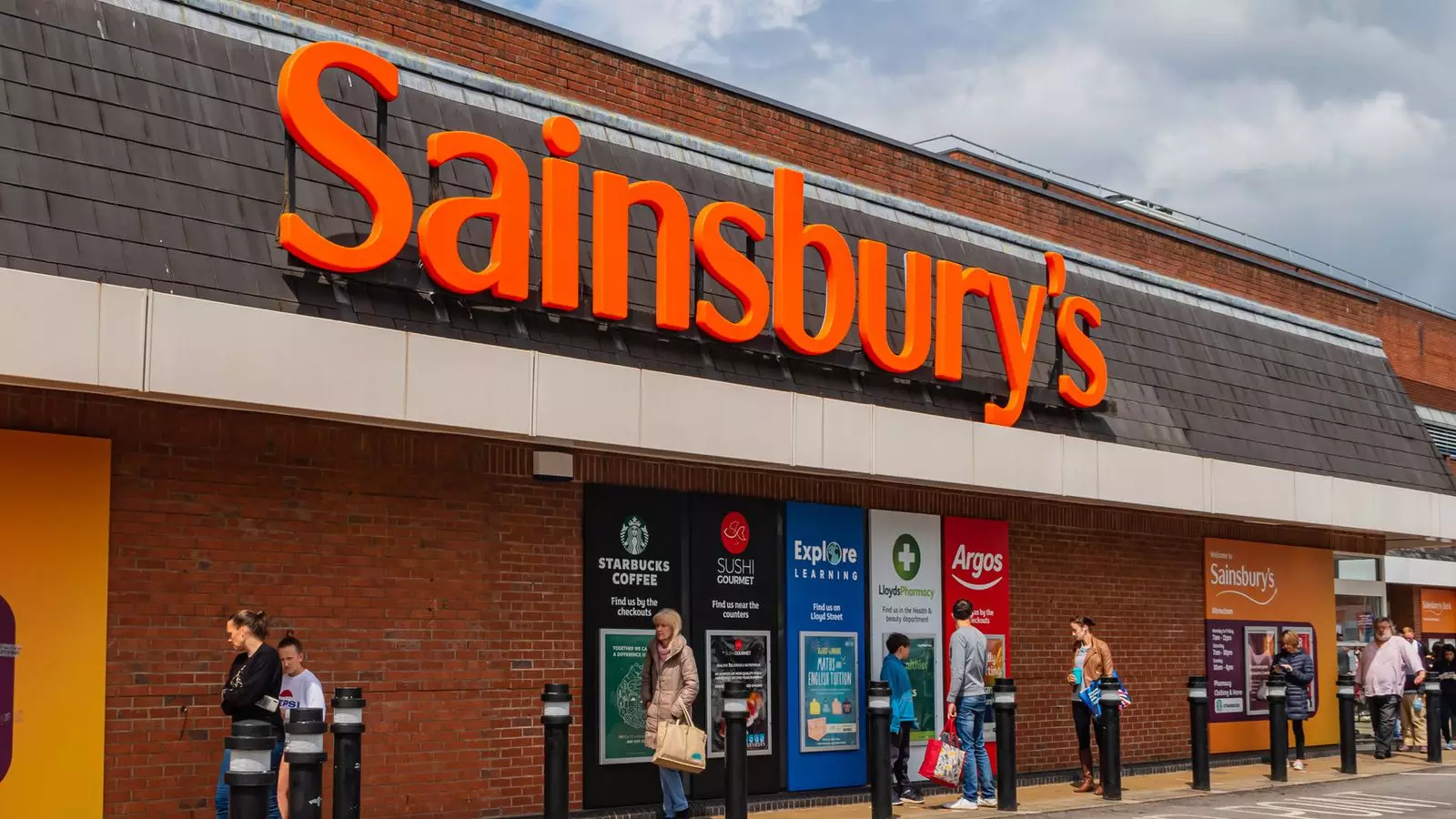Sainsbury’s, one of the UK’s leading supermarket chains, has announced plans that will result in a staggering reduction of over 3,000 jobs. This decision identifies a significant shift within the company, indicating attempts to revamp its operational structure amidst rising costs. New measures entail the closure of remaining in-store cafes and various food counters, all aimed at enhancing efficiency during a tumultuous financial period. The implications of this decision extend beyond mere job losses; they reflect the broader engagements of the retail sector with economic pressures.
At the heart of Sainsbury’s decision is a response to what has been termed a “challenging cost environment.” The supermarket’s CEO, Simon Roberts, highlighted that the moves—though difficult—were essential for maintaining the company’s momentum. This speaks to a larger trend in the retail industry where companies are restructuring to remain competitive in the face of rising costs, especially with impending increases in taxes and expenses. Notably, the planned cuts come after Sainsbury’s announced significant pay rises for its store workers, hinting at a complex financial balancing act where investment in staff is weighed against sustainable operational practices.
The closure of in-store cafes appears to be a direct response to changing consumer behavior, as these facilities have reportedly seen dwindling patronage. Sainsbury’s aims to adapt its offerings, significantly through the reduction of in-person dining experiences within its supermarkets. In addition, several specialized counters for hot food and pizzas will be removed, further indicating a shift in how the chain operates in-store. Each of these cuts presumably aims to streamline operations and refocus resources where they are deemed most effective.
The decision to cut jobs at such a scale raises considerable concern regarding its impact on employees and local communities. With Sainsbury’s employing around 148,000 staff nationwide, the layoffs may be seen as indicative of broader challenges facing the retail sector. As certain roles vanish, the potential ripple effects on employment in local areas cannot be understated. Organizations and unions have already reacted strongly, labeling the job cuts as corporate callousness and accusing Sainsbury’s of prioritizing profits over the welfare of its workers.
Unite union official Paul Travers characterized the layoffs as “corporate greed,” suggesting that the drive for profit is encroaching on the dignity of workers. The tension between a company’s financial health and the job security of its workforce exemplifies an ongoing struggle, particularly in retail environments where customer engagement and employee satisfaction are crucial for long-term success.
Sainsbury’s job cuts coincide with heightened scrutiny over the government’s recent budget measures, which have drawn criticism for imposing a heavier tax burden on businesses. Such policies have sparked debate about their efficacy in supporting the economy and protecting jobs. In response to concerns regarding layoffs, government representatives have emphasized the importance of economic growth and support for businesses. However, critiques abound, suggesting that rising costs from taxation cripple potential investments and employment opportunities.
The interplay between government policy and corporate hiring decisions unveils a troubling cycle in which efforts aimed at bolstering the economy may inadvertently contribute to industry instability. Sainsbury’s experience mounts pressure on the government to reevaluate its strategies, as the anxiety surrounding job losses occurs in the backdrop of fiscal responsibility measures.
As Sainsbury’s navigates this pivotal moment, its decisions serve as a reflection of the evolving landscape in retail. Adaptation will be key to survival in a sector increasingly at the mercy of fluctuating economic conditions. The restructuring aimed at maintaining efficiency could eventually dictate how supermarkets align themselves with consumer demands and market trends.
Moreover, the ongoing discourse surrounding corporate economics, taxation, and employment stability remains crucial. Observers will be keenly watching how Sainsbury’s evolves from this experience, particularly in balancing shareholder interests while ensuring employee welfare. Ultimately, the implications of this situation may extend beyond Sainsbury’s, affecting consumers, communities, and the broader economic climate in the UK.



Leave a Reply